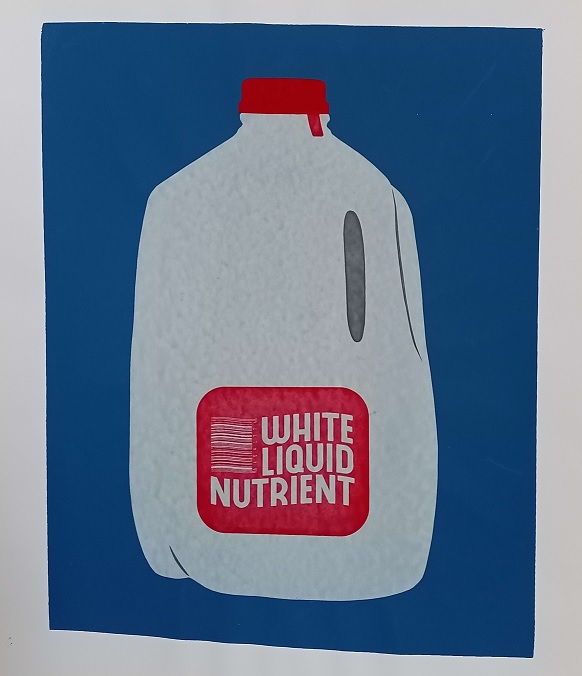rt, will you ban it?
No, because, it does not fix the root problem.
Also, banning things isn’t the way to fix things.
I would also be a hypocrite for changing to legalize pot, while also chanting to ban corn-based sugars.
Just removing subsidies on corn would solve the core problem. There are lots of things corn is used for that shouldn’t be corn that also get fixed by that.
This is the answer. High fructose corn syrup is over-used because it’s dirt cheap to produce, and it’s only dirt cheap to produce because corn is subsidized.
As much as I love my bourbon whiskey, I’ll accept the fact that prices will go up if corn stops being subsidized, but that’s what’s desperately needed in this country.
Let’s just tax it. Last time I’ve looked (a while ago) HFCS was at about $400/t. Just add a tax of $800/t that solely goes to programs fighting obesity.
The downside of HFCS isn’t the syrup itself, but the fact that it is so cheap and is easily able to be added to make things taste “better” for basically no cost.
I would end the corn subsidies in America. They make bank anyway
No, because just banning things rarely achieves the desired results.
And whether it’s cane sugar or high fructose corn syrup, too much sugar in general is the problem, much more so than the subtle differences between the two.
Not ban. No.
However, I would tax it at exactly the same rate as the corn and farm subsidies lower its cost, to make its actual price reflect reality.
I think we just need a way to incentivize corporations to provide healthy alternatives as well (and not just HFCS, but high sugars in general, etc). Not sure of the best approach, but the bigger issue is that when every corporation is pushing cheap sellers that are addictive, its no wonder most people eat them. Like, McDonalds alone isn’t responsible, but corporations in general because their basically saying they can’t be held responsible for being successful. But they’re putting so much money into being successful and trying to be successful, that it’s difficult when you have such large entities pushing that way but then saying “it’s not our fault people are going in the direction we push”
Incentivizing a company to do anything besides turn a profit is impossible. You must beat them into submission so that the only choice they have is to conform with the overall public health policy. Removing subsidies on Corn would be a good idea to specifically address HFCS in everything. An even better idea would be to just socialize food production and remove the profit from it and instead prioritize healthy affordable food for the citizenry.
I mean, if we’re talking about impossible things, changing the world economic structure is one of them.
You can’t socialize food production without socializing the entire economy of the world. Many countries rely on food production as their number one source of income. So you can’t just socialize one industry. Let alone getting the world to play along.
An incentive could be “offer healthy alternatives otherwise something bad will happen.” It requires meddling with the system and ignoring the free market, but sounds like I don’t think you’d disagree with disruption in the free market.
One country, the US, could absolutely take it’s food off the world market and if I had the power to “ban” HFCS, I would 100% socialize US food production.
That’s not the way any of this works. You can’t just change a portion of the system. The US imports a ton of food. Banning something is actually a realistic ability. Ingredients have been banned before. Creati ng a system that is doomed to failure due to not thinking about it for 3 seconds is a different class of ability. We’re talking about changing the laws of a country, not breaking the laws of math and physics. I’m pro-socialism but this is an awfully thought out take. It would cause worldwide economic collapse and less to starvation around the world due to such an event.
TIL portions of systems cannot be changed, ergo all systems are static unless they are destroyed.
No, you can change parts of it, but you can’t just arbitrarily say any part can simply be replaced willy nilly. That’s just childish. Changes have impact and consequences. You’re literally ignoring cause and effect. I can see nothing is worth discussing with you though if you’re going to respond with something a child would say. So we’re done here.
The premise is magically banning something. What do you expect?
It can stay but I’d like to restrict the packaging size of highly processed food and food that’s otherwise extremely unhealthy.
For example breakfast cereal. Wtf? How does that even exist? Why was I allowed to eat a fucking bowl of that in the morning as a child?Because being poor takes all your time. It’s way quicker to let everyone get a bowl of cereal versus making food for an hour to find that nobody ate half their plate anyway.
HFCS is a better alternative to sugar for the US. Not necessarily health wise (they both are about as equally terrible for you in the amounts Americans consume them), but in a logistical way. The other sources of sugar are sugarcane, which are only farmed in parts of 3 US states, and sugar beets, which are only farmed in 11 US states. Corn is farmed pretty much everywhere in the US, and we produce a lot more of it. This ensures that we have a much more stable supply of corn, which is important for a widespread staple ingredient in most US foods. This also means the US is not reliant on foreign imports for HFCS since it’s produced domestically, ensuring US food security if a major exporter of sugar has to halt exports. This also gives the US an excuse to farm even more corn, increasing the supply of corn and making our supply more stable in the process. Outside of HFCS, corn is used in everything from animal feed to gasoline and batteries, which means running low on corn one year due to an unstable supply would devastate the US; HFCS helps prevent that. Federal corn subsidies also help make HFCS a much cheaper option than conventional sugars, keeping food prices lower which helps people afford to eat. The main argument against HFCS is the serious health effects that it causes when eaten in high amounts, but regular sugar which would replace HFCS in most foods causes the same problems in the amounts they are consumed while being significantly more problematic logistically for the US
deleted by creator







